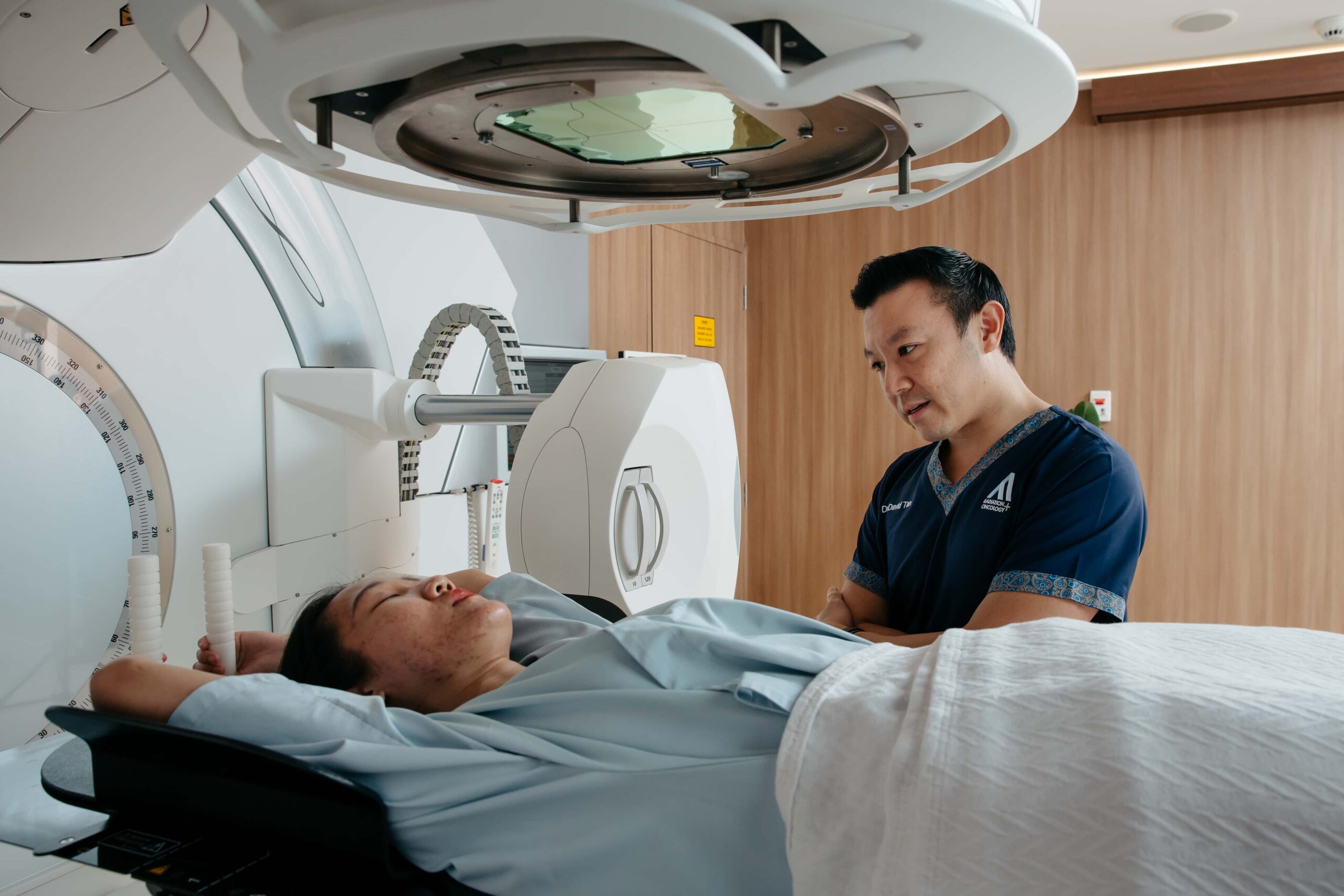How is Lung Cancer Diagnosed?
There are several tests for lung cancer. Your doctor may order a number of tests to determine whether you have lung cancer, while also ruling out other conditions as the cause of your symptoms. If you are a healthy person at risk of lung cancer due to family history or heavy smoking, cancer screens using low-dose CT scans can be done annually.
- Imaging tests: These include an X-ray image of your lungs or a CT scan, which can detect small lesions in the lungs that may not be visible on an X-ray.
- Sputum cytology: If you have a cough and are producing sputum, examining the sputum under a microscope can sometimes reveal the presence of lung cancer cells.
Tests used to diagnose lung cancer may include:
- Tissue sample (biopsy): The biopsy procedure removes a sample of abnormal cells to be examined.
What are the Treatment Options Available?
Lung cancer treatment in the 21st century is multidisciplinary, personalised, and precise. Rapid scientific and technological advances have resulted in a variety of treatment options for lung cancer.
The treatment options may include:
- Surgery
- Stereotactic Body Radiotherapy
- Intensity Modulated Radiotherapy
- Chemotherapy
- Targeted Therapy
- Immunotherapy
Once the diagnosis is made, a consultation with an oncologist is essential to understand the numerous treatment options available in this rapidly advancing field. If you have any further questions, feel free to contact us or speak with your oncologist.

